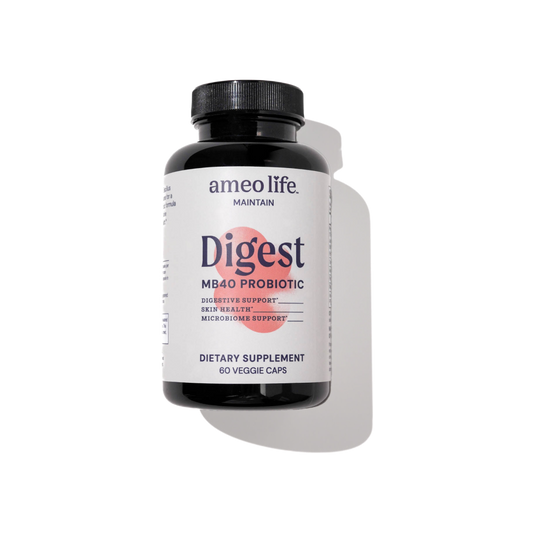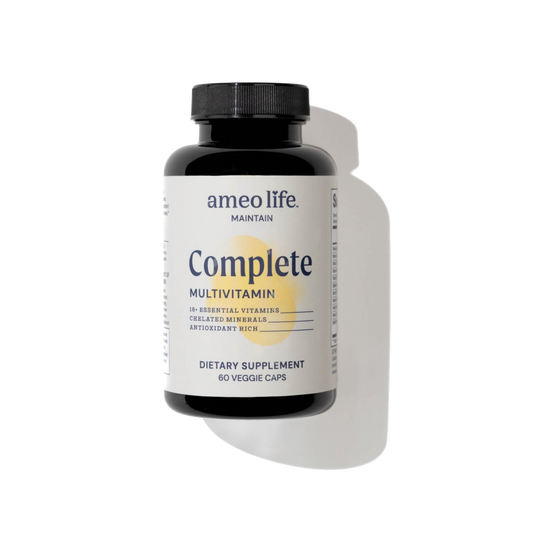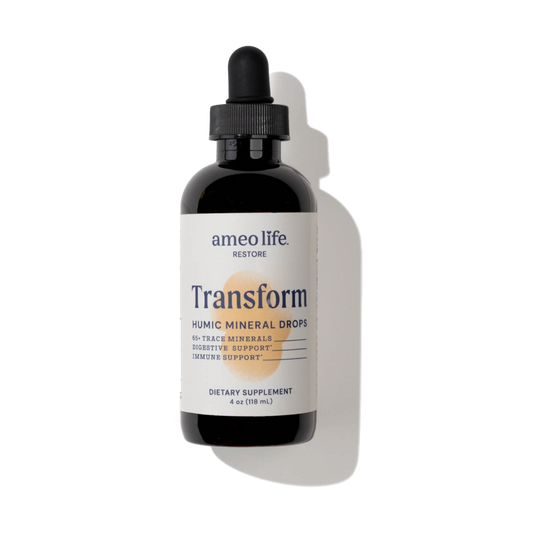The Microbiome : How it Works, and a Diet for Digestive Health

A Healthy Microbiome Is Essential For Ultimate Health
We have a false perception that all bacteria in our microbiome can cause disease and are the leading source of the majority of our everyday infections.
Although it’s true to a certain extent, there are beneficial bacteria present in our microbiome. Also on our skin as well as in our digestive system - that make up what is known as the “microbiome”. This is the ecosystem of our body that directly affects our gut health and the overall immune system.
The benefits of healthy bacteria can often be overshadowed by the stories of harmful bacteria we hear about causing illness.
Here's a complete guide that breaks down these complex concepts to help you understand the importance of the microbiome, how it works, and the different ways you can protect and support it.
What Is the Human Microbiome?
According to researchers, 90% of diseases originate in the gut. We all have a complex internal system consisting of bacteria, fungi, viruses other microbes, called the microbiome.
According to the Department of Chemistry & Biochemistry at the University of Colorado, the human microbiota contains 10-100 trillion symbiotic microbial cells, which are the primary bacteria in the gut.
Your microbiome is sometimes also referred to as a “genetic footprint” as it helps to determine the DNA and set point weight for your body.
Microbiome Diet

When it comes to microbiomes, your diet plays a BIG role.
Our gut health is directly related to how nutrients are extracted from the diet and stored. For example, when healthy and slim mice are given a gut microbiota transplant from overweight mice, they automatically acquire more body fat (without eating more!) This is because the gut bacteria can influence hormone production (insulin), fat, and nutrient extraction.
It is essential to lower inflammation to support gut health. This brings us to the next question: how exactly can you do that? Here are some inflammatory foods you must avoid for best results.
Foods that Promote Inflammation Include:
- Refined vegetable oils: canola, corn, and soybean oils
- Pasteurized dairy products
- Refined carbohydrates and processed grain products
- Conventional meat, poultry, and eggs
- Added sugars
- Trans fats/hydrogenated fats
High antioxidant foods can combat inflammation in the body by reducing oxidative stress, thus improving immunity. Here is how you can safeguard your healthy cells.
Foods that Reduce Inflammation Include:
- Fresh vegetables (all kinds): beets; carrots; cruciferous vegetables; dark, leafy greens, onions; peas; salad greens; sea vegetables; and squashes.
- Fruit (not juice): apples, cherries, oranges, pears, grapefruit, plums, red grapefruit, and all types of berries.
- Herbs: turmeric, ginger, basil, oregano, etc.
- Probiotics: yogurt, kombucha, kefir, or cultured veggies in your diet daily.
- Protein: Wild fish, farm eggs, and grass-fed meat.
- Healthy fats: grass-fed butter, coconut oil, raw virgin olive oil, nuts/seeds.
- Ancient grains and beans: black beans, black-eyed peas, lentils, buckwheat, quinoa, etc.
- Red wine and dark chocolate: it is recommended to take these in moderation.
How to Support your Microbiome
Avoid Antibiotics
Antibiotics are one of the most misunderstood forms of medicine. Sure, they can help fight serious diseases, but they can also eliminate the “good” bacteria which can lower immune performance and make you more susceptible to disease and allergies.
That’s not even the worst part; due to overdose of prescribed antibiotics, the dangerous bacteria become immune, making it harder to fight them in terms of severe health problems. Therefore, always ask your doctor for antibiotic alternatives when possible.
Work Out More and Reduce Stress
Stress is the biggest culprit for reducing your body's ability to fight against infections while also straining your mental health. This means if you are prone to stress, there is a better way of living this life.
Regular exercise is recommended, as it naturally relieves stress, lowers inflammation, and strengthens the immune system.
Add Supplements
Incorporate omega-3 fish oils, antioxidants like Vitamins C and E along with selenium to fight free radicals and improve gut health.
Microbiome Issues

We are beginning to understand that inflammation is the root of all disease.
Just as the Earth’s environment can improve as we reduce emissions and carbons, your gut microbiome also changes depending on its 'environment'. It can improve as you change your diet and lifestyle.
These improvements can help balance hormones, fight tumors, stimulate neurons in the brain, and impact energy levels and mood to a great extent.
Common Issues Arising from an Unbalanced Microbiome
Autoimmune disease: Autoimmune disorders such as rheumatoid arthritis can develop when our body’s immune system starts attacking itself, creating pain and inflammation.
Brain disorders/cognitive decline: Inflammation not only affects your physical health but can also greatly damage your cognitive abilities. An anti-inflammatory lifestyle improves memory, cognition, and overall brain health, as shown by studies.
Fatigue and joint pain: An overgrowth of harmful bacteria in your digestive tract can contribute to serious conditions in your joints and tissue. Studies show that having a healthier gut can instantly reduce the risk of joint pain, osteoarthritis.
Mood disorders: Depression is very common all over the world. Did you know that industrial farming, pesticides, and degradation of nutrients in foods can increase your chances of depression?
What you eat directly affects your emotional state, stress handling, and energy levels due to the interrelation between the microbiome and neurotransmitter activity.
Allergies, asthma, and sensitivities: There are certain foods that can reduce food allergies and respiratory ailments. An anti-inflammatory diet can help combat leaky gut and eliminate phlegm or mucus in the lungs.
Conclusion
Nowadays, researchers are actively working towards gaining a better understanding of microbes to help fight countless diseases. We now understand that bacteria and viruses, once blamed for our poor health, actually perform many positive functions within the body.
To wrap up, the microbiota is the trillions of microbial organisms that reside within us. Whereas poor gut health can lead to inflammation and a long trail of diseases.
Having a gut-friendly diet and lifestyle have proven unmatched results in lowering stress and making you feel like the best version of yourself!







